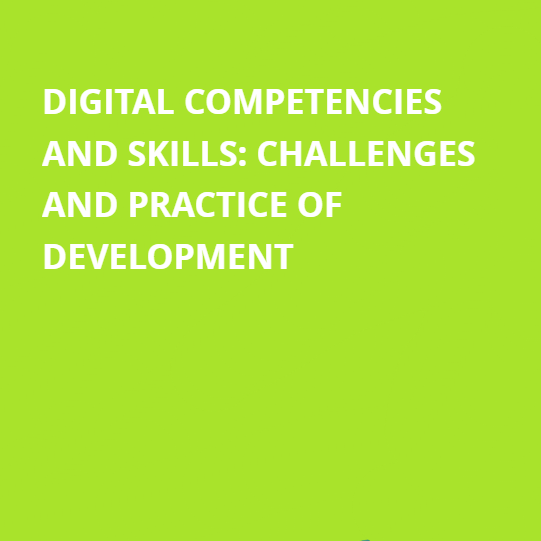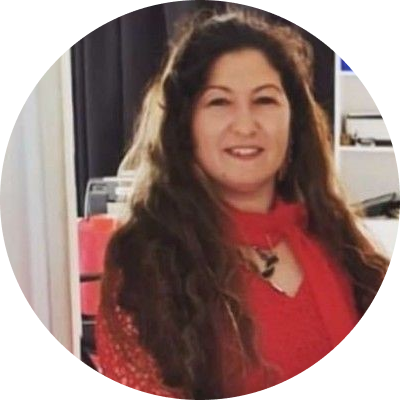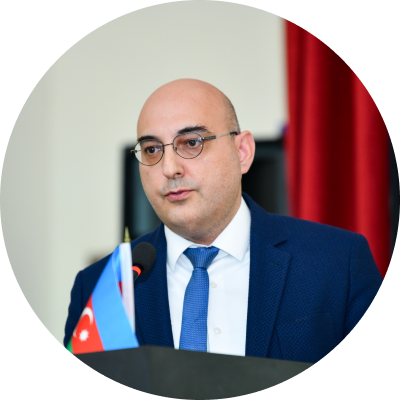WHY SHOULD YOU ATTEND?
EXPERT SPEAKERS
We will host professionals around the globe to share knowledge and experience during the conference.
FORMAT AND TIME
The conference is a fully virtual event. The conference will begin at 10:00 a.m. and end at 16:00 pm (CET).
LATEST TOPICS
We will discuss some of the most important topics.
RECORDING
We will provide a recording of the conference after the event for 14 days.
SPEAKERS
AGENDA

Digital education and digital skills provision
What should we teach the next generation? Future skills: the role of the university.
Speaker: Zehra Altınay, Fahriye Altınay.
Games as a teaching tool: The case of Minecraft
in Education
Speaker: Anna Stamouli.
Collaborative Development of an Online Seminar
Series to Boost AI Literacy in Higher Education
The presentation will explore the collaborative process of co-creating a series of online sessions with staff, students, and alumni to enhance AI literacy. We will reflect on the impact of these sessions and share lessons learned throughout the process.
Speaker: Brenda Williams.
How do engineering educators engage with
student digital capabilities?
Although there is emphasis on digital capabilities in higher education (HE), understanding how they are embedded into the curriculum has not been established. This case study draws on peer-reviewed literature to investigate the integration of digital capabilities in engineering education against a backdrop of intensification of academic work. Using Activity Theory (AT), the integration of digital capabilities in engineering education is explored from the perspective of education-focused (EF) academics who were interviewed about their practice.
Speaker: Tamsyn Smith.
Development of generic digital competencies in
Higher Education
In this presentation you will be introduced to the 4-year project “Mapping the lecturers’ in UCL’s generic digital competencies” (2018-2023) as a part of UCL University College Research for 2018-2022. The main purpose of the mapping is to ensure targeted investments in the competence development of the lecturers and in relevant technologies, which will contribute to students being able to acquire future-proof digital competencies.
Speaker: Peder Møgelvang Pedersen.
Digital Leadership
In this presentation, Dr Alison Purvis will share her experiences of digital leadership and digital learning transformation, and early findings from her research about the requirements and characteristics that senior leaders must consider to be effective digital leaders. What makes an effective leader of digital change and how can we role model behaviours for positive change in digital transformation?
Speaker: Alison Purvis.
How Artificial Intelligence is Shaping Educational
Knowledge Production
This presentation explores how artificial intelligence is transforming the ways in which teachers and students produce knowledge. It examines opportunities for enhancing student learning and delves into the challenges posed by AI in educational contexts.
Speaker: Eucidio Pimenta Arruda.
Value Creation in (Business and Educational)
Communities through Digitalization: Deconstructing
the Buzzwords
From alumni organizations to communities of practice to customer loyalty programs – 'communities' can be a tremendous source of value as well for participants, as for institutions that can tap into this process of value co-creation. And 'digitalization' continues to be a game changer in both, creating and exploiting this potential. However, most institutions trying to 'manage' communities fail due to crucial misunderstandings in their dynamics. This presentation will offer a clarifying big picture to help 'owners' get the most out of their community – for all parties.
Speaker: Wolfgang Rathert.
New value creating IT tools for good management
Good management and entrepreneur adopt increasingly connected and integrated solutions. There is also a growing need to strengthen IT protections and build resilience networks. Using modern technologies as Big Data analytics, the industrial internet of things (IIoT), cloud computing and block chain ensure robotize activities. Successfully integrating digital technology reduces operational costs and up-to-date efforts.
Speaker: Elshan Ahmadov.
Navigating the Data Labyrinth: Empowering Libraries
through Digital Literacy and Research Data
Management
Speaker: Isak Van der Walt.
Digital education and digital skills provision
What should we teach the next generation? Future skills: the role of the university.
Speaker: Zehra Altınay, Fahriye Altınay.
Games as a teaching tool: The case of Minecraft
in Education
Speaker: Anna Stamouli.
Collaborative Development of an Online Seminar
Series to Boost AI Literacy in Higher Education
The presentation will explore the collaborative process of co-creating a series of online sessions with staff, students, and alumni to enhance AI literacy. We will reflect on the impact of these sessions and share lessons learned throughout the process.
Speaker: Brenda Williams.
How do engineering educators engage with
student digital capabilities?
Although there is emphasis on digital capabilities in higher education (HE), understanding how they are embedded into the curriculum has not been established. This case study draws on peer-reviewed literature to investigate the integration of digital capabilities in engineering education against a backdrop of intensification of academic work. Using Activity Theory (AT), the integration of digital capabilities in engineering education is explored from the perspective of education-focused (EF) academics who were interviewed about their practice.
Speaker: Tamsyn Smith.
Development of generic digital competencies in
Higher Education
In this presentation you will be introduced to the 4-year project “Mapping the lecturers’ in UCL’s generic digital competencies” (2018-2023) as a part of UCL University College Research for 2018-2022. The main purpose of the mapping is to ensure targeted investments in the competence development of the lecturers and in relevant technologies, which will contribute to students being able to acquire future-proof digital competencies.
Speaker: Peder Møgelvang Pedersen.
Digital Leadership
In this presentation, Dr Alison Purvis will share her experiences of digital leadership and digital learning transformation, and early findings from her research about the requirements and characteristics that senior leaders must consider to be effective digital leaders. What makes an effective leader of digital change and how can we role model behaviours for positive change in digital transformation?
Speaker: Alison Purvis.
How Artificial Intelligence is Shaping Educational
Knowledge Production
This presentation explores how artificial intelligence is transforming the ways in which teachers and students produce knowledge. It examines opportunities for enhancing student learning and delves into the challenges posed by AI in educational contexts.
Speaker: Eucidio Pimenta Arruda.
Value Creation in (Business and Educational)
Communities through Digitalization: Deconstructing
the Buzzwords
From alumni organizations to communities of practice to customer loyalty programs – 'communities' can be a tremendous source of value as well for participants, as for institutions that can tap into this process of value co-creation. And 'digitalization' continues to be a game changer in both, creating and exploiting this potential. However, most institutions trying to 'manage' communities fail due to crucial misunderstandings in their dynamics. This presentation will offer a clarifying big picture to help 'owners' get the most out of their community – for all parties.
Speaker: Wolfgang Rathert.
New value creating IT tools for good management
Good management and entrepreneur adopt increasingly connected and integrated solutions. There is also a growing need to strengthen IT protections and build resilience networks. Using modern technologies as Big Data analytics, the industrial internet of things (IIoT), cloud computing and block chain ensure robotize activities. Successfully integrating digital technology reduces operational costs and up-to-date efforts.
Speaker: Elshan Ahmadov.
Navigating the Data Labyrinth: Empowering Libraries
through Digital Literacy and Research Data
Management
Speaker: Isak Van der Walt.










